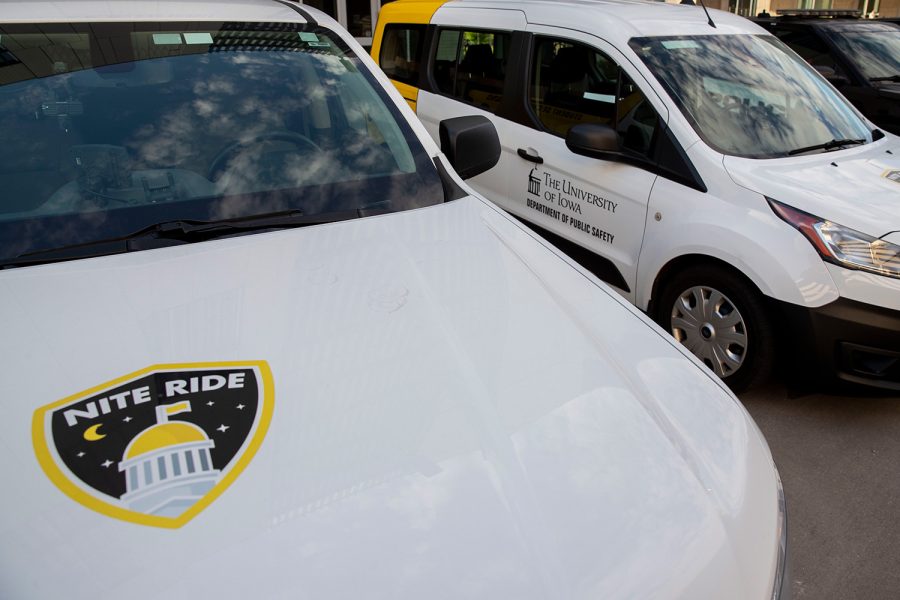The University of Iowa’s Nite Ride service will begin offering rides to the GuideLink Center, located at 300 Southgate Ave. in Iowa City, to help increase access to the mental health and substance abuse counseling services.
While the Nite Ride service is available for students to use to go to the GuideLink Center, Campus Safety’s Public Information Officer Hayley Bruce said no students have utilized the service to go to GuideLink this year.
Campus Safety is looking to spread awareness of the Nite Ride option for students who need to go to the GuideLink Center.
The Nite Ride is offered after the UI’s Cambus stops running at 10 p.m. and runs until 5 a.m. daily and offers free late-night transportation to UI students. The university is looking to expand the Nite Ride services to help students who suffer from mental health and substance abuse disorders.
The expansion of Campus Safety’s Nite Ride program comes at a time when law enforcement agencies in Johnson County are working to expand access for mental health care and add mental health response personnel to their staffs to help prevent the criminalization of substance abuse and mental illness.
Bruce said while mental health services in the community do help support the community, it is important to recognize that people struggling with mental health does not mean they are committing or adding to crime.
“These partnerships are really about holistic health and ensuring that people who are in crisis, whether that’s with their mental health, alcohol, drugs, or other issues they might be facing in life, get connected with the safety and support resources they need,” Bruce said.
Additionally, Bruce said Campus Safety is planning to release a response model that will be available on Campus Safety’s website, which outlines responses based on what issue one may be experiencing.
Iowa City Police Department’s annual report shows that calls for service that result in using mental health services have been consistent since the drop off during the COVID-19 pandemic. However, Public Information Officer Lee Hermiston wrote in an email to The Daily Iowan that this does not mean mental health services are not being utilized.
“There are also still occasions when an officer is the safest option for all of those involved,” Hermiston wrote.
He also wrote that resources, such as the GuideLink Center and the department’s mental health liaison, are still relatively new, so data for how these resources directly impact crime rate is not available yet.
GuideLink has 16 rooms for immediate substance use care or crisis stabilization which provides an alternative to the emergency room or inpatient psych where people can receive timely treatment in a community-based setting.
RELATED: Youth crisis stabilization center facilities begin renovations despite no guaranteed funding
Through this work, GuideLink reduces incidents where people who are not sober are left out in the community with nowhere to go. The sobering unit is free of charge and keeps people safe from situations they may approach while intoxicated.
Executive Director of GuideLink, Abbey Ferenzi, said the center provides police with more options when dealing with people who are intoxicated, and supports law enforcement by reducing the need for criminal prosecution.
Beyond allowing a safe place for people who are intoxicated to go, Ferenzi spoke on some of the other positives of the center.
Unlike facilities in the traditional American health care system, GuideLink addresses mental health and substance abuse simultaneously.
There are other resources for mental health, such as CommUnity, which has mobile response where embedded therapists will respond to a person who calls and help operate the national 988 crisis line.
Editors note: A previous version of the article stated that the Nite Ride service is being moved to the GuideLink Center. The Daily Iowan regrets this error.



